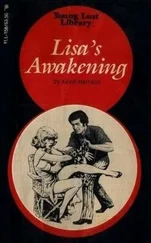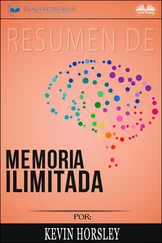As I becamemore insecure in seventh grade, my brother Matt was starting to make real friends in high school. He was the first black student ever to attend Kennewick High, and because of that, he was probably the first and only black person they knew. At this point in his life, Matt still didn’t have a good idea who his father was and never felt like he could pry into the matter. A nagging feeling of not knowing who he was always shadowed him. Some people asked him if he was Mexican and some asked him if he was adopted. When he signed up to play on the high school football team, the coach wanted him to play running back and said he was going to make him “the team’s Walter Payton.” The implied stereotype of the comment weighed heavily on Matt’s mind for a long time.
Besides, his favorite sport was actually hockey. But there wasn’t a hockey team in Kennewick. And at the time, I don’t even think there were any black players in the NHL. I remember the New York Rangers were always playing on the USA Network and that was Matt’s favorite team. I’d hear him shouting and cheering from his bedroom (he was lucky enough to have a TV in his room). He really got into it. Sometimes I’d watch the Rangers with him, but I couldn’t get excited about it.
I much preferred watching football with him. We would usually turn down the volume and pretend to be the play-by-play announcers. We were big fans of Howard Cosell and Brent Musburger. This was also around the time when we tape-recorded fake talk shows with fake commercials, inspired by Martin Mull’s old show, America 2-Night .
At school, Matt mostly hung out with three guys who also felt like outsiders. Anthony was Japanese, George was Mexican, and J.D. was Ukrainian. They called themselves the United Nations.
J.D. was Matt’s closest friend and they did things pretty often after school. The first time that Matt went to J.D.’s house didn’t go well though. He rode his bike there after school and knocked on the door. Apparently, J.D.’s mom didn’t know that her son had a black friend. She opened the door with a look of panic on her face and told Matt that he couldn’t come in. “You shouldn’t be friends with J.D.,” she said. “If my husband finds out, he will shoot you.”
Matt got on his bike and rode home in tears. J.D. heard about what had happened and confronted his parents. He told them that Matt was his friend for life and that he would not allow them to treat him like that again. After that, Matt spent a lot of time at J.D.’s house and his parents never had a bad thing to say.
Still, Matt did wonder if there was a gun in the house, and if it had ever been fired.
I was addictedto football statistics.
Every Sunday during football season I would jump up and down and yell at the television.
Then, on Monday mornings, I would sprint the two blocks to the newspaper machines at the post office. My dog, Scooter, would lope alongside me and I pretended he was a linebacker trying to tackle me. I’d always bought a USA Today or a Seattle Post-Intelligencer because they had the best stats; I’d cut them out and later add them up during my first-period class. I never liked the Seattle Seahawks because I had an unexplainable dislike for local teams. My favorite football team was the St. Louis Cardinals (who later became the Arizona Cardinals). Picking my favorite team as a kid was mostly based on who had the coolest helmet. I liked the profiled cardinal head and the dark red of their uniforms. All my friends liked the other popular teams of the seventies—the Cowboys, Steelers, and Chargers. The Cleveland Browns didn’t have anything on their helmets. I couldn’t fathom why anyone would like them.
As I ran back home I would imagine myself as a wiry punt returner like Terry Metcalf or a powerful running back like Ottis “OJ” Anderson. My dog was actually named after Ottis Anderson. I had heard that Ottis had the nickname Scooter when he was younger.
The newspaper in my hand turned into a football and I would dodge tacklers, set records, and make highlights that would never be shown.
Matt and Iplayed football a lot growing up. Most of the time we’d play with the neighbor kids in Miss O’Hara’s yard, which was about half the size of a real football field. We’d ask her first and most of the time she’d say yes, unless she had company and didn’t want to hear all of our yelling. We called her yard O’Hara Stadium. We had to be careful because there was a water faucet sticking up, about groin-level, right in the middle of the field. Amazingly, we avoided any serious injuries there.
I loved playing football but played only one season in high school. I didn’t like having to memorize plays and I didn’t like getting hit. I was a wide receiver and I caught one pass the whole season (a screen play). I preferred the backyard style of game played with the neighborhood kids or, later on, with Matt and his friends, who were all older and much bigger than me. I’d tag along each Saturday to Underwood Park. One of Matt’s friends was the older brother of a short, stocky girl named Jane who was trying to get permission to play on the high school football team. She’d play with us sometimes and she was really good, not afraid to hit and be hit (we played tackle). But one week she ran into the pole that marked the back of one of the end zones. It knocked her out and she stopped coming around after that.
My size worked to my advantage with these guys. I was speedy and elusive, the guy you’d have to watch out for on the “long bomb” route. Or I’d catch short passes and run out of bounds before I could get clobbered.
One morning inearly 1981, I was at my friend Brian’s house, where I had spent the night. His family had lived just down the street from mine but was now in a much bigger house in an area where a lot of new houses were being built. Brian was a year younger than me but he always played football with Matt and me and the other neighborhood kids. He had a good arm and I always thought he’d be a star quarterback.
We were in his front yard, playing catch, when his mom came out and excitedly told us that the American hostages in Iran were going to be set free. Although I didn’t understand the situations behind the hostage crisis, it was something that I thought about for a lot of that year when it was happening. As in: What would I do if I were held hostage for 444 days? It was a hypothetical source of worry and paranoia for me. I was starting to doubt America’s power.
Brian must have been asking himself those same hypothetical questions, because we looked at each other and I could tell he was as relieved as me. We started jumping around and whooping it up. We dashed into the wide new streets of the housing development and ran along them, up and down the paved hills, shouting, “The hostages are free! The hostages are free! The hostages are free!”
From sixth toeigth grade, Dad made me go to a Wednesday-night Catholic Bible study thing called CCD (Confraternity of Christian Doctrine). It was held in a building behind the church. I have very little recollection of it, because I constantly skipped it. Instead, I would hang out at the bowling alley next door for an hour, playing video games. I was obsessed with these new machines, my favorites being Space Invaders, Battlezone, and Pac-Man. I even bought the books that showed you different play patterns to use. I prided myself on making up my own strategies though, and I was really good, topping the high score and creating calluses on my thumb at the same time.
Читать дальше












